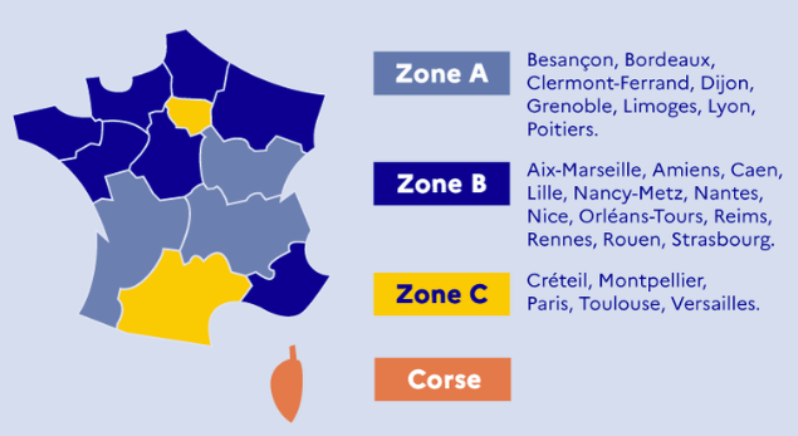One of the practical concerns for students moving to France is finding affordable and convenient dining options. This is where the “Restaurant Universitaire” (RU) system, known as student cafeterias, comes into play. This article will explore how student cafeterias work, how much they cost, who can use them, and where they are located.
What is a Restaurant Universitaire (RU)
Restaurant Universitaire, commonly known as RU, is a student cafeteria system operated by the Centre National des Œuvres Universitaires et Scolaires (CNOUS) and its regional subsidiaries (CROUS). These student cafeterias provide affordable meals to students, ensuring they have access to nutritious food without straining their budgets.

How Does It Work
Student cafeterias operate similarly to traditional cafeterias but are designed specifically for students. They offer a variety of meals, including starters, main courses, and desserts. Typically, students can choose from several menu options daily, including vegetarian choices.
To use the services of a student cafeteria, students need a student ID or a card issued by CROUS. Some universities might have their own dining cards linked to the student cafeteria system. Payment is usually made using a rechargeable card, which can be topped up online or at designated machines within the university.
How Much Does It Cost
One of the main advantages of dining at a student cafeteria is the cost. The French government heavily subsidizes these meals, making them incredibly affordable. As of 2024, a typical meal at a student cafeteria costs around €3.30 for students. This price includes a main dish, a side (such as vegetables or rice), a dessert, and sometimes a starter. This is significantly cheaper compared to eating out at regular restaurants or even cooking at home in some cases.
Who Can Use Student Cafeterias
Student cafeterias are primarily designed for university students. Both local and international students enrolled in French higher education institutions can take advantage of these services. In some cases, student cafeterias may allow members of the public to dine, especially during off-peak hours or in smaller university towns. However, this is less common, and non-students might find the menu limited or the prices a bit higher than the student rate.
Where Can You Find Student Cafeterias
Student cafeterias are strategically located on or near university campuses across France. Major cities like Paris, Lyon, Marseille, and Toulouse have numerous student cafeterias to cater to their large student populations. Smaller cities and towns with universities also have student cafeterias, ensuring that students all over France have access to affordable meals.
You can find the nearest student cafeteria by checking the CROUS map here: https://www.crous-paris.fr/se-restaurer/carte/

Student Cafeteria vs. Cooking at Home
Choosing between student cafeterias and cooking at home depends on your priorities. Student cafeterias, costing around €3.30 per meal, offer affordable, balanced, and convenient dining, saving you time on meal prep and cleanup. They also provide a social environment to meet fellow students. Cooking at home might be slightly cheaper and allows for personalized meals, but it requires more time and effort for planning, shopping, and cooking.
Here are some delicious and affordable meals known for being favourites among students: https://gogofrance.com/en/blog/french-cuisine-for-students/
Tips for International Students
- Get Your Card Early: Ensure you obtain your student ID or CROUS card as soon as possible to start enjoying meals at student cafeterias.
- Explore Different Student Cafeterias: If you are studying in a large city, try different student cafeterias to find the one that best suits your taste and schedule.
- Learn Some French: Basic French phrases can be helpful when navigating the menu and communicating with the staff at the student cafeteria.
Student cafeterias are a fantastic resource for international students studying in France. They offer an affordable, convenient, and nutritious dining option that helps students manage their budgets and stay healthy. By taking advantage of the student cafeteria system, students can focus more on their studies and enjoy their time in France without the added stress of meal planning and budgeting.











